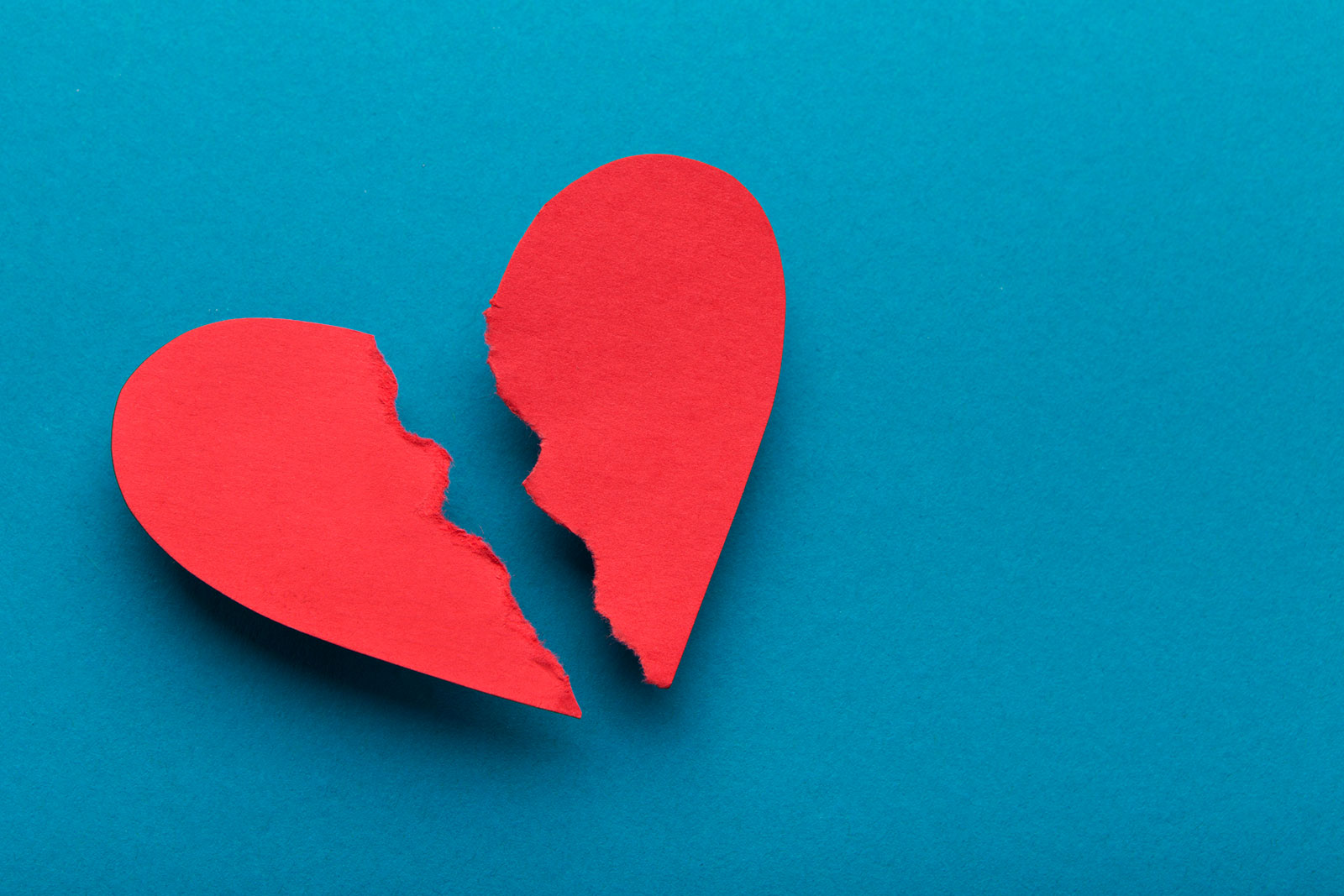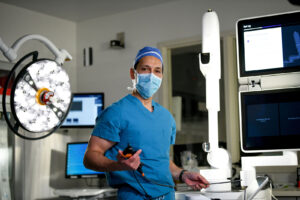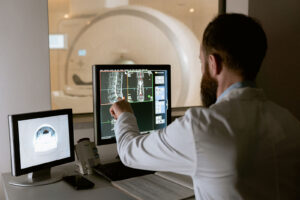The first time I met my medical oncologist, it was a few weeks after my double mastectomy. I was sitting on the exam table, sweating, the white paper underneath my bottom crackling with every movement. The moment she entered the room, her warm smile eased my concerns and we chatted like old friends.
She took her time to explain everything. There was no denying that I was terrified but at the end of the appointment, she handed me her card and encouraged me to reach out. And when I told her I planned to get a second opinion, she completely understood.
“You do what you need to in order to feel confident in your treatment decisions,” she told me. “Ultimately, Sarah, it’s your body. I am always here for you in any way I can be.” Her and her team’s support is the reason I followed her when she switched hospitals. As long as we were in this together, the “big C” could be conquered—or at least managed.
Unfortunately, not every cancer warrior has a positive experience and, much like any other bad relationship, breaking up with an oncologist proves inevitable.
John S., a colorectal cancer warrior, describes his first oncologist as cold. During the initial consultation, the oncologist called John’s radiation specialist and said, “I’m here with John, the anal cancer guy.” John and his wife were floored by the doctor’s lack of professionalism.
Not every cancer warrior has a positive experience and, much like any other bad relationship, breaking up with an oncologist proves inevitable.
“It was surreal to be talked about in this way almost as if I was not another human being in the room with her,” John says. He knew that this person was not someone he wanted on his medical team. He’s thrilled he trusted his instinct and switched oncologists.
Shruti V., a young breast cancer warrior, never felt any connection with her oncologist. From the beginning, he was apathetic. In fact, she never even met him in person. Halfway through chemotherapy, she began the process of switching doctors.
“When you get a diagnosis like cancer, you don’t feel like you have the time to sit there and research the person coming up with your treatment plan,” Shruti says.
For some patients, including Diane S., you assume that the hospital oncologist assigned to you is someone you can trust. Such a doctor came into Diane’s hospital room and told her that she had cancer but to “go home and pretend that she didn’t just hear those words.” He instructed her to call his office to set up a scan. But when she called, his office had no idea what she was talking about—they didn’t handle PET scans.
For someone dealing with lung cancer, this was unsettling.
With the help of her sister, Diane found a new oncologist. She has been with them for eight years. “I truly thank [my oncologist] for saving my life. I believe that if I had not sought out treatment from a second opinion, I would not be here today,” Diane says.
Oncologists deal exclusively with cancer, and cancer is one of the scariest words any patient can hear, so why aren’t all oncologists approaching patients with more compassion? As Shruti V. says, “I am still a person and [cancer] was devastating news to our family.”
Oncologist Dr. Victoria Lavin knows firsthand how her patients feel. In 2017, she was diagnosed with breast cancer.
As she discusses in an article for The Guardian, going through cancer affected her practice as an oncologist. “It has been an education in patience, humility and gratitude,” she writes. She questioned the perky platitudes she had previously offered her patients. Lavin reminds oncologists that patients need to be treated as people.
Your body changes during treatment, and it leaves behind a trail of carnage. “Hair loss is something we often gloss over in busy clinics. I have been guilty of simply handing over a wig leaflet as the patient walks out the door. It matters. It changes a person’s whole identity,” Lavin reveals.
How you treat people is as important as any medicinal treatment. Because when you are a patient who has been diagnosed with cancer, eye contact, empathy and kindness from your oncologist are just as critical to patient care.
Sarah DiMuro is a writer based in Toronto, Canada. You can follow her on Instagram at @sarahdimurowrites.







